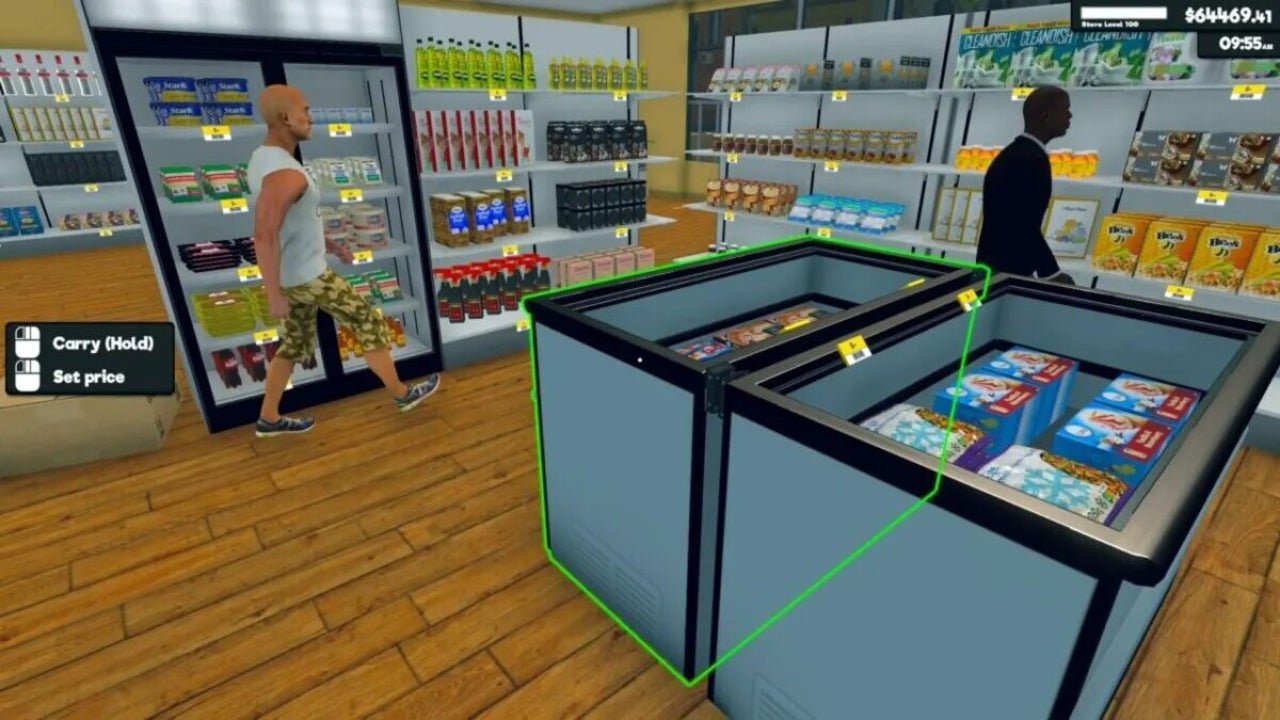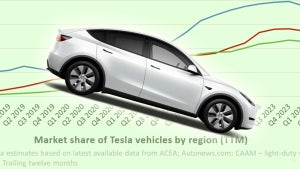News
We have a new game that is a hit on Steam: Supermarket Simulator. Why do crazy simulators like this one become so popular?
Crazy simulators succeed on Steam, and although it may seem like just a result of memes or the exposure given by streamers, the reality is that there is something more behind them.

- March 13, 2024
- Updated: May 27, 2024 at 6:46 PM

There is something peculiar about the popularity of games that simulate a job to the fullest extent. It doesn’t sound like fun. Working as a pilot makes sense, but working on a farm, driving a truck, a taxi or managing a supermarket don’t sound like interesting things to do in your free time. They sound like what they are: a job. And yet, we constantly see games with the “Simulator” tag appearing on bestseller lists.
The latest game of this kind that has succeeded on Steam has been SuperMarket Simulator. As its name describes, it is a simulator of managing a supermarket. Starting with a tiny store and very little money, we will have to manage the day-to-day operations, buying products, setting their prices, and making sure we earn enough to pay the rent. All this while making an effort to grow little by little until we turn our store into a big supermarket.
Because the interest of the game lies precisely in that. In that we have to be attentive to all the details. We will have to restock products, make sure to give the correct change, and ensure we have space for everything. Seeking to find the perfect balance between all aspects of the game, in a constant loop where it is difficult to reach an impossible situation, but always generating a pinch of stress when seeing how the situation unfolds.
Supermarket Simulator has a peak of 107,824 simultaneous players and is in the top 8 best-selling games, with a 94.29% positive reviews. This can be easily attributed to streamers like ElRubius or Ibai playing it, but there is something more behind its success. This kind of games are very satisfying.
As we have already mentioned, Supermarket Simulator is based on a very specific loop. We buy products, set their price, charge our customers, and then we have to buy products again to restock. If this loop is interesting, it is because there is a certain door open to personal expression and error, and the introduction of small disruptive elements.
The element of error and personal expression occurs in the management that takes place within the loop itself. The first is because we can modify certain values. We can set prices below or above the market, charge the wrong change, or buy more or less of a popular product. Disruptive elements occur in the growth of our store. The appearance of a warehouse, the purchase of new products, or the need to expand our space introduce small breaks in the loop that keep us hooked thanks to their novelty.
That’s why the interest of this kind of games lies in how it keeps us always at a reasonable level of stress. There is always a small new element to introduce, to evolve, to improve. Something that can be criticized for the ideological implications it entails, especially in the context of Supermarket Simulator, but that makes an excellent mechanism to keep players hooked.
Hence its popularity. That repetition with constant small changes to the formula is very addictive. And if you don’t believe us, you just have to try Supermarket Simulator to discover it for yourself.
Cultural journalist and writer with a special interest in audiovisuals and everything that can be played. I'm not here to talk about my books, but you can always ask me about them if you're curious.
Latest from Álvaro Arbonés
You may also like

This might be the most addictive puzzle game you can play
Read more

6 changes to make Windows 11 run much better on your old PC
Read more

European EV Sales Surge by 23.9%, Leaving Tesla Behind
Read more

Tesla’s Production vs. Waymo’s Safety: A New Chapter in the Driverless Car Rivalry
Read more

Kia EV Owners Gain Access to Tesla’s Supercharger Network
Read more

They’ve created an AI to lie in job interviews. Yes, you read that right
Read more